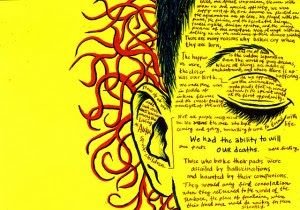Unit 17: Globalization and Diaspora (Grade 11 Compulsory English Solutions)- New Course
A. Choose the words
from the box for the following meanings.
Confront, refugee, ravage, assimilation, enclave, usurp
a. the severely damaging or destructive effects of something
b. someone forced to leave their country in order to escape war, persecution, or natural disaster
c. to face a difficult situation
d. take a position of power or importance illegally or by force
e. the process of becoming a part of a group, country, society, etc.
f. an area within a larger territory whose inhabitants are culturally or ethnically distinct
Answer key:
a.ravage b. refugee c. confront d. usurp e. assimilation f. enclave
B. Collocation refers to words that are found together in spoken and written language. Collocations can be either fixed, where it is difficult to replace one of the words with an alternative, or freer, allowing for more choice of words. The most common types of collocation are:
Verb + noun accept responsibility
Adjective + noun firm determination
Verb + adjective + noun make steady progress
Adverb + verb strongly recommend
Adverb + adjective completely useless
Adverb + adjective + noun totally unacceptable behavior
Adjective + preposition accused of
Noun + noun window frame
C. Fill in the gaps with the correct word from the brackets.
a. I asked him if he was attending the ceremony and he …… his head 'no'. (shook/moved/ nodded)
b. They made a horrible decision which caused …… damage to our company. (hopeless/ inflexible/irreparable)
c. The leaders need to break down …… so as to create favorable environment in the nation. (barriers/obstacles/hindrances)
d. You ought to talk to the manager to ……the dispute. (solve/settle/clear up)
e. Perhaps this issue will not get much media …… (security/examination/ coverage)
f. This week is the first week of Joan as an in-charge. Everything is running …… (smoothly/calmly/easily)
g. I haven't read the text thoroughly, but given a … glance. (fast/quick/rapid)
Answer Key
a.shook b. irreparable c. barriers d. settle e. coverage f. smoothly g. quick
To Infinitive and
gerund
(to+v1 and ending in –ing)
A. Study the following examples.
|
Verbs usually followed by –ing |
Verbs that are usually followed by the infinitive.
|
Verbs followed by either form |
|
Verbs stop, finish, imagine, suggest, recommend, avoid, mind, miss, risk, enjoy, consider, deny, enjoy, fancy, keep, postpone, risk, stop Verb+preposition gave up+ing went on+ing kept on+ing go on+ing interested in+ing
|
Verbs aim, agree, decide, hope, offer, fail, agree, forget, manage, learn, afford, arrange, ask, expect, plan, promise, want, invite, allow, appear, ask, believe, cause, command, decline, demand, fail, deserve, forget, help, hope, enable, force, persuade, prepare Wh-Words what to do when to meet how to get where to go which to select
|
start, begin, continue, bother, intend, -started to learn or started learning - began to eat or began eating - continued to work or continued working - bothered to do or bothered doing -intended to follow or intended following
|
It didn't stop raining all day yesterday.
She promised to take me there.
It started raining. or It started to rain.
She stopped smoking three years ago.
It was hot, so we stopped to have a drink.
B. Complete each
sentence using what/how/where/whether + one of these
verbs: apply, get, do, ride, use, go
a. Do you know …… to Rama’s house?
b. I don’t know …… for the job or not.
c. Have you decided …… for your picnic?
d. Can you show me …… this camera?
e. Ask Hari. He’ll tell you …… a bicycle.
f. I was really astonished. I didn’t know …… on the horse.
Answer Key:
a. how to get, b. whether to apply, c. where to go, d. how to use, e. how to ride, f. what to do
C. Paraphrase the following sentences using the verb in brackets as in the example.
Example: She has lost her weight. (seem)
She seems to have lost her weight.
a. Mahesh forgets closing the windows. (tend)
b. Your car has broken down. (appear)
c. Ashika is worried about her exam. (seem)
d. They have developed the theory. (claim)
e. He’s enjoying his new job. (pretend)
Answer Key:
a. Mahesh tends to forget closing the windows.
b. Your car appears to have broken down.
c. Ashika seems to be worried about her exam.
d. They claimed to have developed the theory.
e. He pretends to be enjoying his new job.




Comments
Post a Comment